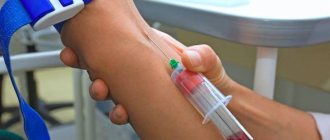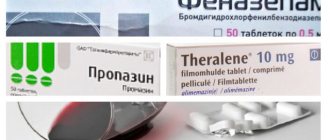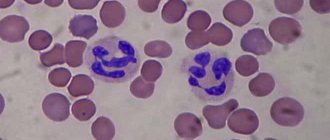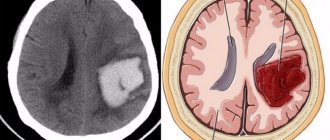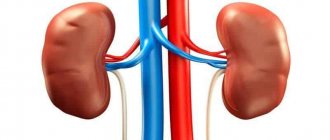Time limits for donation
Many people believe that tattooing and donation are two incompatible things.
But this opinion is wrong. Only donating blood with a fresh tattoo (if less than a year has passed since the date of its application) is considered prohibited. In addition to tattoos, temporary contraindications include the following:
- Acupuncture therapy or piercing - you can donate blood no earlier than a year later. Why can't a blood donor have a piercing? At first, there is a high probability of infection, so donating blood is prohibited.
- Tooth extraction – at least 10 days.
- Colds, sore throat or flu - at least a month from the date of recovery.
- Surgical intervention performed, including abortion – at least six months.
- Menstruation - the procedure can be carried out no earlier than five days after their end.
- Use of hormonal contraceptives - one month after the end of use.
- Carrying a child, labor and lactation - one year after childbirth and three months after stopping breastfeeding.
- Recently introduced vaccines.
Why does blood bleed during a tattoo session?
Often, during tattooing, blood begins to bleed. This is not surprising, since the tattooing process involves piercing the skin, leaving pigment underneath. However, it is worth remembering that drinking alcohol even the day before the session will increase the amount of blood, it will become more liquid and this will interfere with the master’s work (the blood will push out the pigment). Needless to say, alcohol intoxication can affect the correct choice of an image that will remain with you for life.
Constant contraindications for donation
Having figured out why people don’t take blood if they have a tattoo and having identified temporary contraindications to donation, it is necessary to note the permanent prohibitions for donation:
- HIV;
- hepatitis;
- tuberculosis;
- diseases;
- malignant neoplasms;
- ulcerative lesions of the duodenum or stomach;
- Achilles type gastritis;
- ICD;
- pathologies of the endocrine system;
- disturbances in the functioning of the cardiovascular system;
- operations regarding organ transplantation or removal.
Amount of blood taken
Having received the answer to the question of whether it is possible to donate blood with a tattoo, you should figure out how much can be taken from a person so as not to cause harm to his health.
Taking into account gender, age category and body type, the volume of circulating red fluid in the body per kilogram of weight can range from 50 to 80 milliliters. For example, if a person weighs 56 kilograms, then its volume in the body is 4.31 liters. At the same time, doctors can take no more than 12% of this volume.
But, as a rule, a standard blood draw is 450 milliliters, excluding the blood that is taken for analysis, which is approximately another 40 milliliters.
Is it possible to donate blood with a tattoo: requirements and recommendations
Donors, of course, undergo tests, but there is a so-called seronegative phase - a hidden period from the moment of infection until the manifestation of the disease, when the body has not yet developed antibodies to the infection and the test system cannot detect the invading virus (and for HIV, for example, it lasts up to 5-6 months
!), therefore, in order to minimize the risk, the temporary medical exemption from blood donation is 1 year (clause 1.3 of the section “Temporary contraindications” of the List of contraindications to donating blood and its components).
Of course... they do not interfere with blood donation in any way)))
You can get tested, but you can’t be a donor!
I think it’s possible, as long as the blood is pure.
Can. They don't pay attention to this.
Becoming a donor is difficult and you are not suitable.
I think it’s possible, it’s not some kind of infection, but just paint that has frozen on a certain area of the skin. The main thing here is to be healthy and not infected with anything!
It is possible for analysis. You will be accepted as a donor only if you take an HIV test first.
Previously it was completely prohibited. Young people, not knowing that in the future they will not be able to help their child with blood loss, get tattoos. But now blood donation is allowed, 1 year after the tattoo.
Time limits for donation
Citizens of the country who are in the age category from 18 to 60 years old, who are characterized by absolute legal capacity and do not have pathologies that prohibit donating blood or its individual elements, can act as donors.
In a number of situations, a doctor may decide to allow a person over 60 years of age to donate.
Since the answer to the question of whether it is possible to donate blood if you have a tattoo has already been received, you need to familiarize yourself with the features of preparing for the procedure.
A few days before donating blood, it is recommended to remove fried, fatty and spicy foods from your diet. In particular, you should temporarily avoid the following products:
- vegetable and butter;
- milk;
- cream;
- sour cream;
- nuts;
- eggs;
- seeds;
- salo;
- mayonnaise.
Blood donation must be carried out after a light breakfast, including sweet tea, cookies or crackers, fruit (it is strictly forbidden to donate blood on an empty stomach).
https://www.youtube.com/watch?v=playlist
In addition, you need to refrain from a number of actions:
- It is not recommended to drink alcohol 2 days before donating blood;
- 3 days before the procedure, you should stop taking painkillers that contain analgin and aspirin;
- It is recommended to refrain from smoking an hour before donating blood;
- you definitely need to get some sleep.
The answer to the question whether it is possible to be a donor if the tattoo is already more than a year old is positive, but to the question whether it is possible to carry out the procedure while intoxicated or with a hangover, the answer is negative.
Having found out the answer to the question of whether it is possible to be a donor after getting a tattoo, you should definitely understand what tests will be required to obtain donor status.
As a rule, all necessary tests are carried out immediately at the blood transfusion station. These include the following studies:
- blood type and Rh factor are determined;
- a general blood test is taken, where the state of hemoglobin, red blood cells, white blood cells, and ESR is studied;
- markers of blood-borne infections such as HIV, hepatitis B and C are determined;
- the presence or absence of syphilis pathogens is studied.
It is in this case that a person can get a more detailed answer to the question of whether it is possible to donate blood with a tattoo, since in tattoo parlors they often work with non-sterile instruments, which causes a number of infections to enter the human body. And it is during preparation for the blood donation procedure that these infections can be identified.
In addition to taking tests, a potential donor is required to undergo a medical examination during which his blood pressure, temperature, pulse are measured, and he is asked about his general condition. Before the procedure, everyone donating blood must fill out a special questionnaire, which notes their general health and the presence of past diseases.
The final decision remains with the transfusiologist, who assesses the psychoneurological state of the donor and, in case of suspicion of drug or alcohol use, has the right to not allow the person to undergo the procedure.
Today there are a lot of myths and truths about donation, the blood guide will help you understand some of them.
The first true fact is that every third person living on the planet needs a blood transfusion at least once. As a rule, people need this procedure in the following situations:
- a large amount of blood was lost as a result of childbirth, injuries, accidents and various accidents;
- malignant formations are present;
- blood diseases were detected;
- there are severe chronic diseases;
- it is necessary to undergo a bone marrow transplant;
- during surgery.
Every day, more than 1.5 million people in Russia need donor blood.
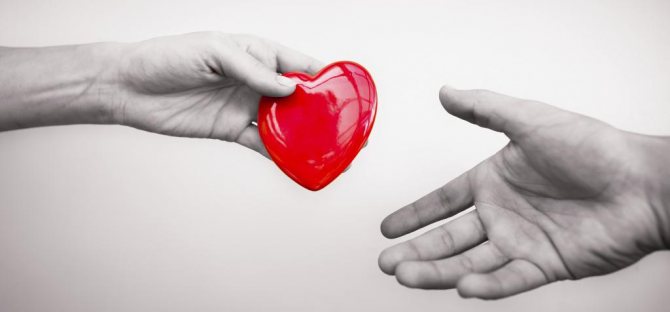
Regarding myths, there is an opinion that soon donor blood will no longer be needed, since a synthetic substance has been developed that will be an excellent substitute for natural blood. This is a lie, the best scientists in the world are still struggling with the described problem, but have not even come close to producing an analogue of natural blood.
You cannot donate blood due to a tattoo and an extracted tooth.
Change text size:
On October 4, Donor Day was held at the Russian New University. It was organized by the National Healthcare Development Fund and doctors from the visiting team of the Blood Center of the FMBA of Russia. A few days before the day of blood donation, the university began distributing propaganda, hanging posters and leaflets. The posters explained that the “This does not concern me and will not affect me” approach to donation issues is not suitable. According to statistics, every third person needs a blood transfusion during his life. And no matter how much we run from these thoughts, trouble can affect everyone... Therefore, on October 4, about a hundred people came to donate blood. All students’ fears about the blood donation procedure were quickly dispelled. They realized that the blood donation procedure is absolutely safe, harmless and takes no more than 15 minutes, and the pain is no more than that of a mosquito bite. By the way, both regular donors—seniors and freshmen—came to donate blood. And also their teachers. They did not walk ahead of their students, but patiently waited their turn. More than 80 people took part in the event and 73 of them donated blood. According to the head of the visiting team of the Blood Center of the FMBA of Russia, Alexander Velichko, this is a wonderful result and the best of all the donor events held at the university! Students who are regular donors know that blood must be donated regularly. Donor blood is constantly needed because not all of its components can be stored for a long time. And according to doctors, donation is very useful for the donor himself, since it is the prevention of diseases of the heart and blood vessels, the immune system, digestive disorders, liver and pancreas. By the way, students who wanted to donate blood came prepared. And there were almost no excuses from donating blood. To do this, students were given memos. And for you, dear readers, some tips to remember: Who can donate blood Any person over the age of 18 can become a donor of blood and its components. Contraindications: - HIV infection, - syphilis, viral hepatitis, - tuberculosis, - blood diseases, - oncological diseases, - peptic ulcer of the stomach and duodenum, - bronchial asthma, - high myopia (6 D or more) and others. Temporary contraindications: - tooth extraction (10 days), - tattooing (1 year), - sore throat, flu, ARVI (1 month from the moment of recovery), - menstruation (including 3 days after), - abortion (6 months), - period of pregnancy and lactation (1 year after birth, 3 months after the end of lactation), - vaccinations. IMPORTANT! Having a residence permit (registration) in Moscow or the Moscow region is required. What rules must be followed BEFORE donating blood? 1. For 72 hours, you should not take blood thinning medications, such as aspirin, analgin, no-spa, etc. If any medications are used, then before donating blood, the donor should consult with the medical staff at the blood transfusion station. This rule does not apply to hormonal contraceptives. 2. You must not drink alcohol for 48 hours. 3. Be sure to get a good night's sleep, and on the day of donation, have a light breakfast. 4. It is recommended to refrain from smoking. Smoking is not a contraindication to donation, but doctors recommend not smoking an hour before and after the procedure. The toxic effects of nicotine entering the bloodstream are dangerous for patients, especially newborns. In addition, this may have a negative impact on the donor's well-being. 5. You should not eat fried, spicy, salted, smoked, bananas, eggs, dairy products and butter. Better - sweet tea, fruit juice, compote, mineral water, jam, bread, crackers, boiled cereals, fish, vegetables, fruits (except bananas). 6. You must always have your ID with you when donating blood. 7. Good health after donating blood will be ensured by 2 glasses of juice or water drunk before blood donation. Privileges of a donor On the day of blood donation, an employee who is a donor is released from work at an enterprise, institution, or organization while retaining his average earnings for these days. After each day of donating blood, the donor is given an additional day of rest while maintaining his average earnings. University students are provided with a certificate exempting them from studying on the day of blood donation and the next day. On the day of donating blood, the donor receives compensation for food in the amount of 550 rubles. On the day of blood donation, the donor has the opportunity to check his health through a medical examination and free tests for the most common infections.
www.kp.ru
Types of blood donation
Having received an answer to the question of whether it is possible to donate blood with a tattoo, you cannot ignore the question about the types of blood donation. Today, the most common method is donating whole blood. It is taken from a vein in the arm, and the volume is 450-500 milliliters at a time. The duration of delivery is from 7 to 10 minutes.
In addition, you can donate individual blood elements, for example, plasma or platelets. During this type of procedure, only those substances that are needed for clinical use are removed from the human blood; the remaining elements present in the composition are returned to the bloodstream.
The procedure aimed at extracting blood plasma occurs quite often. There are two methods for its implementation:
- manual (a dose of blood taken from a patient is centrifuged, divided into plasma and red blood cells, the latter are returned to the donor, and the plasma is quarantined);
- automatic (plasma is collected continuously using special equipment). The duration of the procedure is from thirty to forty minutes.


